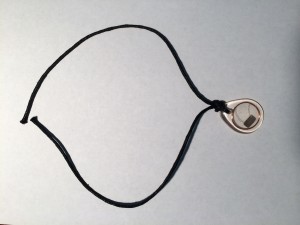In 2014, Ruchit Nagar YC’15, YSPH’16 began working on a project for his mechanical engineering class, Appropriate Technology and the Developing World, a project that would eventually evolve into the Khushi Baby system. Khushi Baby’s technology stores vaccination records on an inexpensive computer chip that can be worn in a necklace and later scanned by health workers with a mobile phone—all without Internet access. This is especially effective for rural regions in India with limited connectivity to a centralized health database.
The Khushi Baby team did extensive research on Indian cultural norms to develop a system their target populations would use. Following tests of several wearable forms for the device, including a bracelet, they chose the necklace after noticing a common tradition in India for children to wear protective necklaces.
“We paid a lot of attention to the [community] and how to generate demand, awareness, and trust. Even something as simple as picking the right form factor can have an impact,” Nagar said.
The team has received support from several sources, including the Thorne Prize, Kickstarter, and the UNICEF Wearables for Good Challenge. Field tests in Rajasthan have yielded positive feedback, and more research studies are scheduled for the upcoming year.
Nagar emphasizes that the key to Khushi Baby’s success is its attentiveness to cultural norms in the target population. “It’s not just about data capture. It’s not just about identifying the patient…it’s also about engaging the community and generating the demand [for the system]. And if we can attack all of those things with one project, then we have something that is different and worthwhile.”

